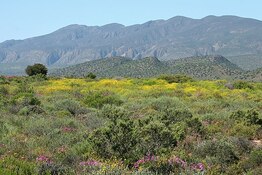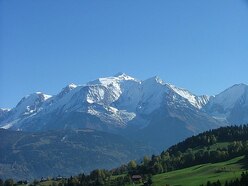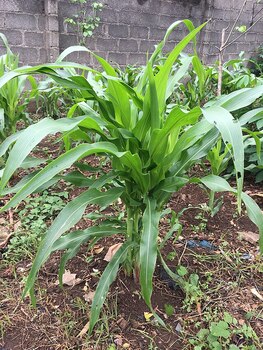Reflecting on a Christian Woman Killed by Police in her Home
This morning I woke up dreaming about my brother, Joseph Shevock, Jr, who died a couple of years ago, ostensibly of an overdose. I said a prayer for him, and then memory turned to a friend of mine from my youth, Rodney Litzinger, who died in 1989 when he was 17. According to rumors he was either drunk driving or speeding or both. Rumors always lay blame where none is helpful. Rodney was a little older than me, and that summer Rodney had stopped hanging out at the Patton Pool, where we spent time together, in the same group of friends. He was impetuous. As the saying goes, people either liked him or not. The term White trash is used, especially by wealthy White Americans, to stigmatize the lives of poor folk, labeling them as inferior, uncultivated, and waste. A simile is the word cracker, which emphasizes how poor people are loud, immodest, and irritating. While my friend Rodney has a picture and memorial on the internet, my brother Joe does not. Both terms, White trash and cracker describes not only myself—I deduce one of the reasons I was not ever able to sniff a tenure-line in higher education was my lingering poverty—but also my dead kin and friends. I stand in harmony with you brothers. In the richest country the world has ever known, we poor linger.
For me, my disadvantaged upbringing, having to grapple for leftovers in a family of nine, became a benefit. God will do these things. Transfer our weaknesses into strengths. I taught for eleven years in the Pittsburgh Public Schools and related to the poor Black, White, Asian, and Middle Eastern students I taught. I was able to thrive in schools other teachers bolted from. Waste is waste—like invites like. We live in a culture that cheapens the lives of waste people, regardless of race. Today, I teach in a Middle School in the fourth poorest county in Pennsylvania—I attended college in the 9th poorest county, and grew up in Patton, which has a median family income of $35,473, which contrasts with Cambria County’s median of $50,900 Clinton County’s median family income of $50,055. The culture treats poor people as trash, their lives as disposable, their needs dispensable. And police are most likely to use deadly force in America’s poor neighborhoods.[i] Waste is waste, but many White poor do not personify solidarity with Black poor.
Which brings me to the moment when I opened my phone to YouTube this morning; the algorithm shared the recently released bodycam footage of Sonya Massey’s killing by police in her home.[ii] She called police to report a potential intruder. The video starts with Massey sitting on the floor talking with a police officer while his partner is looking around the house. He asks for her ID, which she cannot find. She asks for her bible, and he tells her to take a pot of boiling water off the oven. She walks into the kitchen, a good distance from the police officer, and they keep talking. She picks up the pot and walks toward the sink and the police officer shouts something about shooting her in her [anti-Christian word] face. He then follows through with her threat immediately after. She invoked Jesus’s name before being killed. I prayed for Sondra. Whatever he problems, this didn’t need to happen. Her life was treated as trash and wasted, thrown away by this culture—not only in the moment of the killing by this diabolical police officer who could only respond to the invoked name of Jesus with vicious cruelty, but by every structure of our culture—police forces, schools, factories, hospitals. Every structure dehumanizes the human poor. But we poor do not want disestablishment, as if we should be taxed but not have police protection—we need reform, retraining, and change in the institution. Is that even possible when people don’t even see the problem? Has Satan distorted our vision?
In the 1990s and early 2000s, I trained students in karate, and trained a few people who entered police forces and the military. When the Tamir Rice killing occurred in 2014, I showed one of those friends, who was then a police officer, the footage of the police officers driving up to this kid playing with a toy gun and, without fully getting out of their police car, shot to kill. We were seeing two different things. Now, his failing wasn’t a Christian failing because he’s an agnostic. But he we were seeing two different videos. He shortly thereafter stopped talking to me (through Facebook Messenger) because I saw my own son, then an infant, in Tamir’s body, and he saw only a perpetrator that needed to be put down. He was later upset that I wasn’t there for him during his divorce, which I didn’t know about, and I’ve seen him once since then—I drove down there, and he hasn’t visited me here, even when he travelled back home to Pennsylvania.
When Jerusalem was devastated by the Babylonian civilization and most of the people were taken, the prophet Jeremiah instructed:
Build houses and live in them; plant gardens and eat their fruits. Take wives and have sons and daughters; find wives for your sons and give your daughters to husbands, so that they may bear sons and daughters. Increase there; do not decrease. Seek the welfare of the city to which I have exiled you; pray for it to the Lord, for upon its welfare your own depends. (Jeremiah 29:5-7 NABRE)
“Blessed are the poor in spirit, for theirs is the kingdom of heaven” (Matthew 5:3 NABRE) and “Blessed are you who are poor, for the kingdom of God is yours” (Luke 6:20 NABRE). Also there’s a popular Christian song, You Are My Country, performed by Gable Price and friends & Kristene DiMarco, which contains the repeated chorus: “Can we tell the Kingdom from the kingdom where we lay our head down at night?” Here in the U.S. Christians are exiles, whether we have lived here for generations or are recent immigrants. To answer You Are My Country’s question, those of us who are poor (Luke 6:20) or are breathing in unity with the poor, becoming ourselves poor in spirit (Matthew 5:3), the Kingdom is not the nation where we lay our heads down at night. It is God’s kingdom—and sometimes the best we can do is invoke the name of our God and leave our immortal welfare to His divine Will.
The U.S. Catholic Church, where I belong, has several anti-racist statements it has promulgated over the years.[iii] For instance, a 1958 document, Discrimination and Christian Conscience, identifies the core of racism is religious. “If our attitude is governed by the great Christian law of love of neighbor and respect for his rights, then we can work out harmoniously techniques for making legal, educational, economic and social adjustments. But if our hearts are poisoned by hatred, or even indifference toward the welfare and rights of our fellow men, then our nation faces a grave internal crisis.” The Catholic Church is the largest charitable organization in the world, and by far the largest Christian denomination. And yet, here we are facing this grave internal crisis, because our legal, education, economic, and social institutions have persisted in being institutions of hate, and not love.
In another document on the USCCB website is The Catholic Church and the Black Lives Matter Movement. The document recognizes the 3 million African-American Catholics, and “This means that many White Catholics in certain states and in rural communities have virtually no contact with African-American Catholics. Many of them only experience the Black Lives Matter Movement indirectly by way of the media.”[iv] This document recognizes that many young Black Catholics seen the church as in “allegiance” with “White privilege.” “Members of the Black Lives Matter Movement see the Church as a complex bureaucracy tied to the status quo and unwilling and unable to ‘speak truth to power’.” This documents then takes asides into issues of abortion and Black-on-Black crime. “Black Lives Matter supporters argue that the high homicide rates in impoverished Black neighborhoods is fed, in part, by the structural racism that has been in place for generations since the Great Migration, maintaining segregated neighborhoods, inadequate housing, dreadful public schools, and bleak employment opportunities.” This section ends with a recommendation for background checks and screening for guns, care for those with mental health needs, and greater monitoring of violent offenders.
In this document, the bishop interviews a priest involved in Black Lives Matter. The interviewee responds to the question if the Church as an institution believes Black lives matter. “Even though they would be unlikely to use the expression Black Lives Matter because of unfamiliarity with it or because of certain ideas associated with it, I do believe that many people at every level of the Church have a desire to purify the Church of bias, prejudice, and discrimination. Nevertheless, we have a very long way to go.” Finally, the document ends with this sentence: “We must PRAY, LISTEN, LEARN, THINK, and ACT in such a way that all people everywhere will know that we truly believe that Black lives matter precisely because all lives matter!” (Emphasis in original).
Ultimately then, in today’s long post, we see there’s a fact of poverty not being enough of a reason for solidarity between poor groups of people, likely because our institutions have failed to teach that solidarity. Often it seems they keep power through division. Historically, since 1676, Bacon’s Rebellion, when the rich saw poor Whites and Blacks stand together against them, a concerted effort has been made to miseducate poor so they appreciate racial identity more than class. Poor Blacks are taught, by schools, Left-leaning politicians, and media organizations, that poor Whites, through politics personified by billionaire Donald Trump, hate poor Blacks and are the problem. After all, in a culture that views White trash as rubbish, they are an easy scapegoat and receptor of blame. And poor Whites are taught, by schools, Right-leaning politicians, and media organizations, the felonious poor Blacks need to be incarcerated for the good of their nation. But this teaching—and my Catholic Church’s participation in it to the extent that we participate in it—is not Christian, because we are a people in exile. We cannot put our hope in the U.S. or in schools, or in MSNBC, or in Fox News, or in Donald Trump or Kamala Harris. Ours, instead of this nation, these schools, this media, and this nation, is the kingdom of heaven (Matthew 5:3; Luke 6:20). We should pray for this nation and its institution, but they are not ours. We are exiles. We must genuinely oppose any diabolical forces in our Church that suggest we hope in the kingdom where we lay our head down at night, rather than the kingdom of God. To bring the kingdom of God to earth means to dwell with the poor.
DS
[i] Francie Diep. “Police are most likely to use deadly force in poorer, more highly segregated neighborhoods.” Pacific Standard (January 24, 2019). https://psmag.com/news/police-are-most-likely-to-use-deadly-force-in-poorer-more-highly-segregated-neighborhoods .
[ii] John O’Connor. “Bodycam video reveals chaotic scene of deputy fatally shooting Sonya Massey, who called 911 for help.” The Associated Press (July 22, 2024). https://apnews.com/article/illinois-police-shooting-911-murder-7a1b433183933ca94f266c0f90753a33
[iii] United States Conference of Catholic Bishops. “Combating Racism – Statements and Letters” https://www.usccb.org/committees/ad-hoc-committee-against-racism/combatting-racism-statements-and-letters
[iv] Edward K. Braxton. “The Catholic Church and The Black Lives Matter Movement: The Racial Divide in the United States Revisited” (2015). https://www.diobelle.org/documents/diocese/bishop/290-racial-divide-revisited/file







 RSS Feed
RSS Feed
